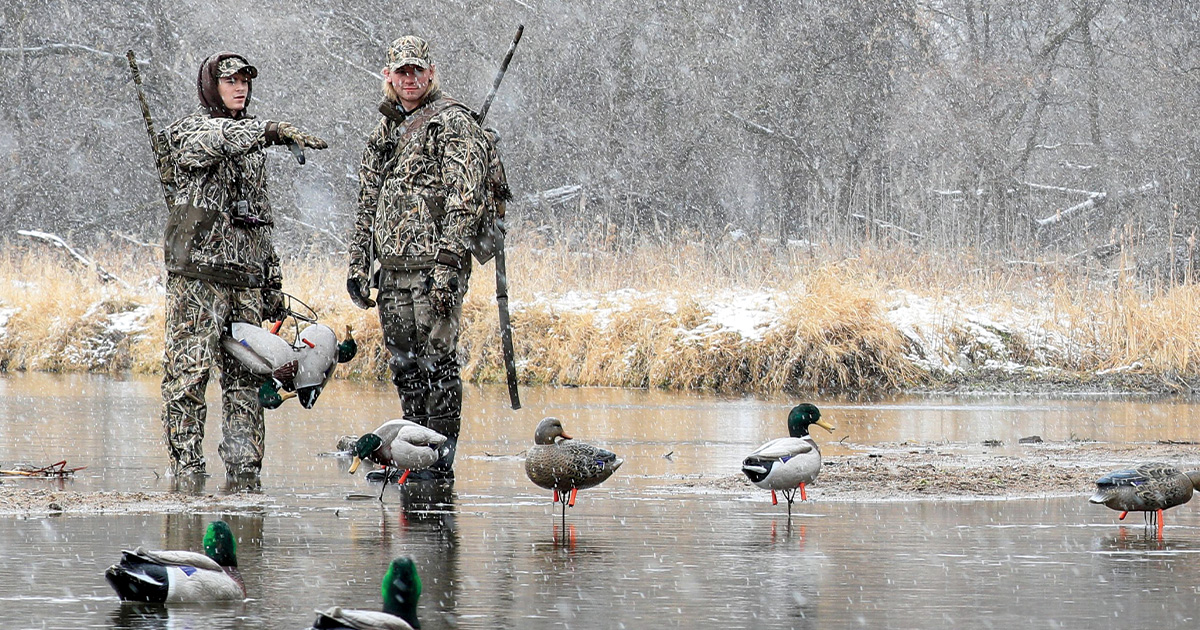Days You Can Sleep In
Here's a look at three waterfowl hunting situations when it pays to sleep in—a little, at least
Here's a look at three waterfowl hunting situations when it pays to sleep in—a little, at least

Waterfowl hunting isn’t always an early-morning endeavor. In some situations, you’ll have better luck later in the day. This is especially true when it’s bitter cold or when a midday weather change is expected.
Ducks and geese are early risers, which means that waterfowl hunters need to be up and at ’em early too. But occasionally there is a good reason to press that snooze button and catch up on some sleep. What follows is a look at three waterfowl hunting situations when it pays to sleep in—a little, at least.
After hitting the fields to feed early in the morning, some species of waterfowl, including mallards and Canada geese, will move to a loafing area to spend the day preening their feathers and maybe catching a nap. They often stay in these areas until just before sunset, when they head out to get another bite to eat. These “day roosts” can provide great action for waterfowl over decoys, and they also offer a chance for hunters to get a little later start in the day. Look for ducks and geese to begin moving to day roosts around midmorning, which means you won’t have to be stumbling around in the dark to get set up.
Cold temperatures aren’t always enough to force waterfowl to migrate out of an area. In fact, ducks and geese are known to tough it out through stretches of frigid conditions if they can still access food and water. In bitter-cold weather, waterfowl will often stay on their roost all morning before leaving to feed in the afternoon, during the warmest part of the day. So, during severe cold snaps, grab a late breakfast, set up your spread, then retreat to the truck to stay warm until the first flocks of ducks and geese begin to move. Then, race back to your blind and get ready for a fast-paced hunt that will have you too busy to notice the cold.
Every season includes stretches when weather conditions are mild, the migration is at a standstill, and local waterfowl fall into patterns that make them really tough to hunt. A dramatic change in the weather, such as the arrival of a powerful cold front with high winds, heavy precipitation, or a combination of both, can be a gamechanger for waterfowlers. Sometimes these meteorological events will occur overnight or during the morning, but if the forecast calls for a weather change later day, there is no need to rush. Just be sure to give yourself enough time to set up before the winds shift or the snow flies.
Ducks Unlimited uses cookies to enhance your browsing experience, optimize site functionality, analyze traffic, and deliver personalized advertising through third parties. By continuing to use this site, you agree to our use of cookies. View Privacy Policy